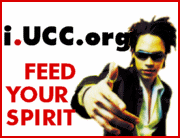Music of the ReformationThis rare 2-CD collection juxtaposes the liturgical poetry of two Reformers: Martin Luther and Thomas Müntzer. Performed by the
Kreuzchor, the legendary choir of men and boys at Dresden's Lutheran Church of the Holy Cross, this anthology is a unique journey through music into the turbulent political and spiritual landscape of 16th-century Europe.
Müntzer, a Catholic priest who embraced the Reformation, was a Biblical literalist who believed the Bible promised a social revolution in which the rich would be dispossessed and the poor would inherit the earth. He led revolutionary troops into battle in the "Peasants' Revolt"—a quixotic and ultimately doomed campaign to overthrow the German ruling class. Luther, on the other hand, remained loyal to his wealthy benefactors: Müntzer, though a former ally, occupied a special place in his gallery of theological horrors. When the Peasants' Revolt foundered both Müntzer and his writings were obliterated; but some of his music survived.
Surprisingly, Müntzer's musical style is the more conservative of the two. He translated the traditional texts of the Latin Mass and Divine Office into contemporary German but retained the historic Gregorian melodies and psalm tones. Luther, who was more sophisticated musically, turned his texts over to the most advanced composers of the German Renaissance. Müntzer's monodic chants and the rich polyphonic treatments of Luther's liturgical poetry are communicated brilliantly in performances that are technically nearly perfect. Fans of Gregorian chant should compare these down-to-earth German interpretations with the more fluid style popularized by Solesmes. But emotion is not absent from these recordings: particularly in the compositions by Luther's friend, Johann Walther, the choir and instrumentalists bring the listener to the intensity of religious ecstasy the composer (and the Reformer) intended.
 Buy this CD
Buy this CD 
